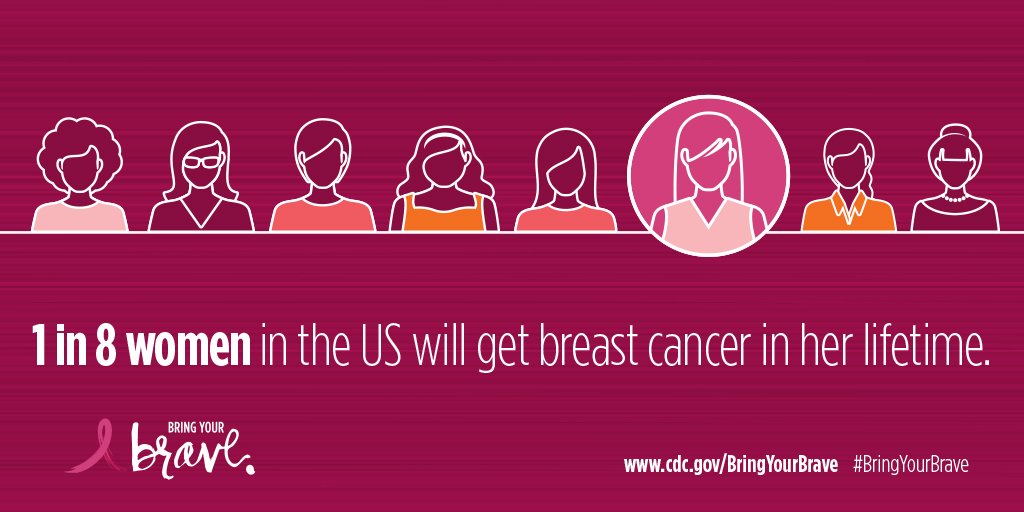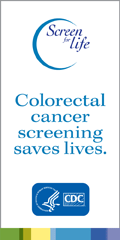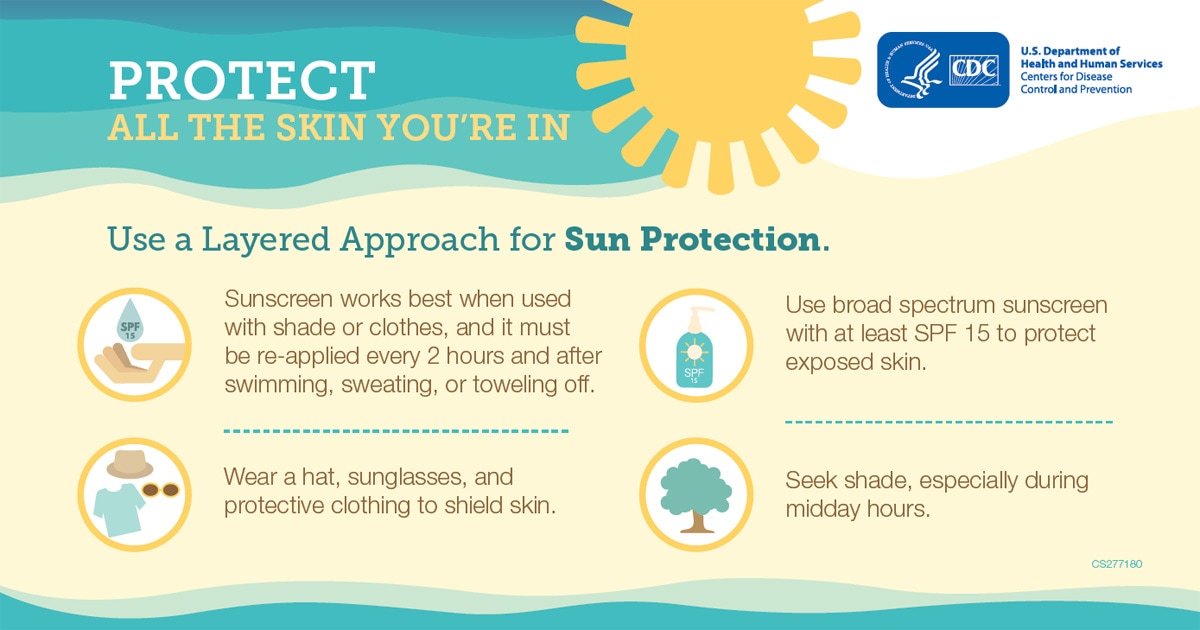

Jump to: Cancer Screening Quiz | Breast and Cervical Cancer | Cancer Screenings | Colorectal Cancer | HPV and Cancer | Skin Cancer
This newsletter provides recent cancer data, prevention tips, educational materials, and resources to your email.
It takes all of us to help prevent cancer and build healthy communities.
Or sign up here.
Have you been screened recently? Take this quiz to tell us more. (En Español)
Simple lifestyle changes can help prevent breast and cervical cancer. Keeping a healthy weight, exercising regularly, limiting alcohol, and getting enough sleep are all steps every woman can take to reduce her risk. However, cancer can still become a problem, especially if there is a history of breast or cervical cancer in the family. We recommend regular doctor visits and screenings to help catch the disease before it becomes deadly.

Women's Health Check (WHC) is funded through the Centers for Disease Control and Prevention (CDC). Since 1996 the WHC has helped save thousands of lives in Idaho by helping low-income, uninsured, and under-insured women gain access to breast and cervical cancer screenings.
Click here to see if you qualify.
Breast cancer is the most common cancer among American women. Having regular mammograms can lower the risk of dying from breast cancer.
Cervical Cancer: When cancer starts in the cervix, it is called cervical cancer. The cervix is the lower, narrow end of the uterus. Also known as the womb, the uterus is where a baby grows when a woman is pregnant. The cervix connects the upper part of the uterus to the vagina (the birth canal).
All women are at risk for cervical cancer. It occurs most often in women over age 30. Each year, about 12,000 women in the United States get cervical cancer and about 4,000 women die from it. Human papillomavirus (HPV) is the main cause of cervical cancer. HPV is a common virus that is passed from one person to another during sex. At least half of sexually active people will have HPV at some point in their lives, but few women will get cervical cancer. Most mammograms and Pap test results are normal. However, any problems found are much easier to treat when discovered early.
If you are 50 to 74 years old, be sure to have a screening mammogram every two years. If you are 40 to 49 years old, talk to your doctor about when to start and how often to get a screening mammogram.
Cervical cancer is the easiest gynecologic cancer to prevent, with regular screening tests and follow-up. Two screening tests that can help prevent cervical cancer or find it early are:
HPV infections are so common that nearly all men and women get at least 1 type of HPV at some point in their lives — and the complications can be serious. Thousands of men and women get cancer from HPV infections every year in the United States.

HPV is a group of viruses that can cause everything from cancer to genital warts. Often the virus spreads through sexual contact - vaginal, oral, or anal- but it can be spread through any kind of intimate skin contact. HPV doesn't always exhibit early symptoms so people can spread it to others unintentionally.
Parents have a unique opporunity to protect their children from cancer by vaccinating their family against HPV infections. Health officials recommend that boys and girls get the HPV vaccine at 11 or 12 to take advantage of the best immune response. Preteens, ages nine through 14, need two doeses of the HPV vaccine. The second dose should be given six to 12 months after the first dose.
Teens between 15 and 26 can still be protected by the HPV vaccine, but they will need three doses. The second dose should be administered one to two months after the first dose, and the third dose should be administered six months after the first dose for best protection. Adults over 26 years old should ask their doctor before getting the HPV vaccine. As about the risk of new HPV infections and the benefits of immunization. Pregnant women and people who may be allergic to any ingredient in the vaccine should consult a doctor before getting the vaccine.

Among cancers that affect both men and women, colorectal cancer is the 2nd leading cancer killer in the U.S. It doesn’t have to be. There is strong scientific evidence that screening for colorectal cancer beginning at age 50 saves lives!
Cancer is always named for the part of the body where it starts, even if it spreads to other parts of the body later. Colorectal cancer is cancer that occurs in the colon or rectum. The colon is the large intestine or large bowel. The rectum is the passageway that connects the colon to the anus.

If you’re 50 or older, getting a colorectal cancer screening test could save your life. Here’s How:
Colorectal cancer usually starts from precancerous polyps in the colon or rectum. A polyp
is a growth that shouldn’t be there.
Over time, some polyps can turn into cancer.
Screening tests can find precancerous polyps, so they can be removed before they turn
into cancer.
Screening tests also find colorectal cancer early, when treatment works best.
Colorectal cancer occurs most often in people aged 50 years or older. The risk increases with age.
Both men and women can get colorectal cancer. If you are 50 or older, talk to your doctor about
getting screened.
Your risk for colorectal cancer may be higher than average if:
You or a close relative have had colorectal polyps or colorectal cancer.
You have inflammatory bowel disease, Crohn’s disease, or ulcerative colitis.
You have a genetic syndrome such as familial adenomatous polyposis (FAP) or hereditary non-polyposis colorectal cancer.
Speak with your doctor about when to start screening and how often you should be tested if you think you’re at high risk for colorectal cancer.
People who have polyps or colorectal cancer don’t always have symptoms, especially at first. Someone could have polyps or colorectal cancer and not know it. If there are symptoms, they may include:
Blood in or on your stool (bowel movement).
Pains, aches, or cramps in your stomach that don’t go away.
Losing weight and you don’t know why.
If you have any of these symptoms, talk to your doctor. They may be caused by something other than cancer. However, the only way to know what is causing them is to see your doctor.
Nearly 5 million people are treated for skin cancer each year in the United States and Idaho is number one in the nation for melanoma deaths. This cancer is entirely preventable and can be treated if you catch it early enough with a simple skin cancer screening.

Use sunscreen with an SPF of 30 or higher on anyone over 6 months old. Reapply every two hours, even on cloudy days, and more frequently when you swim, sweat, or towel off. *Do not use sunscreen on babies under 6 months old!*
Wear protective clothing: a loose-fitting and long-sleeve shirt, a wide-brimmed hat, and sunglasses.
Limit time outside between 10 a.m. - 4 p.m. when the sun's rays are the strongest.
Seek or create shade, especially if you have noticed that your shadow is shorter than you.

Infants under 6 months:
Infants are at risk for sun damage because they have sensitive skin, an immature body system, and they are unable to communicate if they get too hot.
Keep your baby out of direct sunlight. If your baby is outside, protect them from the sun by keeping them in a shady area such as under an umbrella, a large tree, or the sun shade on a stroller.
Sunscreen:
Many different types of sunscreen are available: lotions, spray, sticks, creams, and lip balm.
Your sunscreen should be broad spectrum which means it is protecting you against both UVA and UVB rays.
An expensive brand of sunscreen does not provide any better protection than a cheaper brand of sunscreen.
Many people do not use enough sunscreen. They end up getting burned and then think the sunscreen doesn't work. Generally, if you use enough sunscreen, you should not have any left over from summer to summer. If you spend a lot of time outdoors, you should be using several bottles per summer.